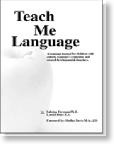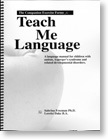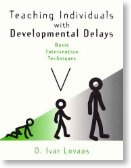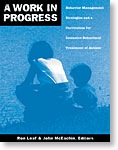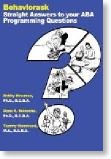special education
Trust, but verify
27/04/12 10:46 Filed in: autism
President Ronald Reagan had a Russian proverb he liked to use when discussing relations with the Soviet Union: “Trust but verify.” I would suggest this philosophy should also apply regarding anyone in a position of authority over vulnerable children with special needs -- particularly autism. We need systems of verification to ensure against malfeasance, rather than only trust that people will always do the right thing when charged with responsibility over an autistic child. The disgusting revelation regarding what recently happened to a child with autism in a segregated classroom is a case in point.
Here’s the update.
A ten year old child was bullied by his special needs teachers in a classroom that was designed to teach children with autism! This behavior was uncovered by a smart father who wired his child with a recording device and thereby discovered the horrendous daily torment his child was experiencing. The father, Stuart Chaifetz, created a video and posted it on youtube to expose the disgusting practice which occurred in the Cherry Hill School District in New Jersey.
Chaifetz, is attempting to clean up the school district and rightly so! His goal is to pass legislation that requires teachers to be fired immediately upon discovery of bullying behavior. He has a petition that he’d like people to sign.
I’d like to suggest that this does not go far enough. What is required in my view, is systemic change. The failure here is not about people, but rather, about a system where there are no checks and safeguards to protect disabled children.
There is one solution that is quite straightforward. Parents need to have a choice regarding whether they would like their child in a special needs classroom that has constant video surveillance. Those parents who choose this type of classroom for their children will never have to worry again. There are those who would argue that teachers’ rights are infringed upon due to this type of surveillance. In a contest of competing rights, it’s obvious the child’s rights must always trump the rights of the worker.
Until there is a 100% reliable way to verify that children with special needs are being treated properly, regrettably this type of abuse will continue. We need good systems, not good intentions!
If you’d like more detail about this horrendous incident, here is the video created by Stuart Chaifetz, the child’s father.
Here’s the update.
A ten year old child was bullied by his special needs teachers in a classroom that was designed to teach children with autism! This behavior was uncovered by a smart father who wired his child with a recording device and thereby discovered the horrendous daily torment his child was experiencing. The father, Stuart Chaifetz, created a video and posted it on youtube to expose the disgusting practice which occurred in the Cherry Hill School District in New Jersey.
Chaifetz, is attempting to clean up the school district and rightly so! His goal is to pass legislation that requires teachers to be fired immediately upon discovery of bullying behavior. He has a petition that he’d like people to sign.
I’d like to suggest that this does not go far enough. What is required in my view, is systemic change. The failure here is not about people, but rather, about a system where there are no checks and safeguards to protect disabled children.
There is one solution that is quite straightforward. Parents need to have a choice regarding whether they would like their child in a special needs classroom that has constant video surveillance. Those parents who choose this type of classroom for their children will never have to worry again. There are those who would argue that teachers’ rights are infringed upon due to this type of surveillance. In a contest of competing rights, it’s obvious the child’s rights must always trump the rights of the worker.
Until there is a 100% reliable way to verify that children with special needs are being treated properly, regrettably this type of abuse will continue. We need good systems, not good intentions!
If you’d like more detail about this horrendous incident, here is the video created by Stuart Chaifetz, the child’s father.
Hopeless Special Education can't be fixed with "dispute resolution"
29/11/11 10:29 Filed in: autism | Asperger's Syndrome
I just finished reading a study which quantifies the amount of autism related litigation against the educational system in the United States. The study concentrates on lawsuits which use the legal precepts codified under the Individuals with Disabilities Education Act (IDEA). This law of course contains the legal requirement that all wayward school districts must provide a Free and Appropriate Education in the Least Restrictive Environment (FAPE/LRE) for children afflicted with autism.
But apparently we’re a very litigious bunch, insofar as parents of children with autism file more lawsuits than parents of other children with special needs; I’m sure this comes as no surprise to the thousands of parents who endlessly fight for their children’s access to an appropriate education!
The interesting statistic in this study is that court decisions regarding children with autism account for almost one third of the litigation under this section in the Individuals With Disabilities Education Act (IDEA).
Predictably, the special education system does not like to waste money defending itself against a tsunami of autism related lawsuits. The authors suggest, “Special education leaders need to pay particular attention to establishing effective communications and trust building with parents of students with autism and to optimize the use of various approaches of alternative dispute resolution.”
Allow me to translate. The authors do not suggest that special educators should do the right thing for children with autism and follow the law, which requires inclusion and mainstreaming whenever possible; rather, they suggest that educators manipulate the parents to “trust” the professionals. If there is a problem, they should steer the parents away from going to court by deflecting substantive matters such as a systemic lack of medically necessary autism treatment, and instead focus on better “dispute resolution” and “trust building.”
It’s amazing how loyal parents of children with autism are when someone in the system actually looks out for their child and his future! The good special educators need power to advocate for the child in the system. The law, and the litigious nature of the parent, creates just the balance that a good special educator needs to push through the accommodations required for that child. If it’s uncomfortable for some bureaucrats to victimize children with autism because their parents have a crack team of litigators, and the law is on their side, so be it!
The authors of the study need to wake up: the reason that there is so much autism litigation is because the educational system fails children with autism on a regular basis. Autism can be the most difficult disability to accommodate successfully; however, with sufficient expertise, successful mainstreaming of children with autism in a school system is of benefit not only to the child with autism, but also to the typically developing children in that system.
Here is some advice for every school system that wants to avoid litigation: 1) hire skilled autism treatment talent at the district level to make the school district a magnet for parents who are invested in the future of their children with autism; and 2) allow autism experts, from birth-kindergarten, home or center treatment teams, to follow the children seamlessly into the system.
If school districts follow this simple formula, the amount of autism related litigation will diminish overnight!
But apparently we’re a very litigious bunch, insofar as parents of children with autism file more lawsuits than parents of other children with special needs; I’m sure this comes as no surprise to the thousands of parents who endlessly fight for their children’s access to an appropriate education!
The interesting statistic in this study is that court decisions regarding children with autism account for almost one third of the litigation under this section in the Individuals With Disabilities Education Act (IDEA).
Predictably, the special education system does not like to waste money defending itself against a tsunami of autism related lawsuits. The authors suggest, “Special education leaders need to pay particular attention to establishing effective communications and trust building with parents of students with autism and to optimize the use of various approaches of alternative dispute resolution.”
Allow me to translate. The authors do not suggest that special educators should do the right thing for children with autism and follow the law, which requires inclusion and mainstreaming whenever possible; rather, they suggest that educators manipulate the parents to “trust” the professionals. If there is a problem, they should steer the parents away from going to court by deflecting substantive matters such as a systemic lack of medically necessary autism treatment, and instead focus on better “dispute resolution” and “trust building.”
It’s amazing how loyal parents of children with autism are when someone in the system actually looks out for their child and his future! The good special educators need power to advocate for the child in the system. The law, and the litigious nature of the parent, creates just the balance that a good special educator needs to push through the accommodations required for that child. If it’s uncomfortable for some bureaucrats to victimize children with autism because their parents have a crack team of litigators, and the law is on their side, so be it!
The authors of the study need to wake up: the reason that there is so much autism litigation is because the educational system fails children with autism on a regular basis. Autism can be the most difficult disability to accommodate successfully; however, with sufficient expertise, successful mainstreaming of children with autism in a school system is of benefit not only to the child with autism, but also to the typically developing children in that system.
Here is some advice for every school system that wants to avoid litigation: 1) hire skilled autism treatment talent at the district level to make the school district a magnet for parents who are invested in the future of their children with autism; and 2) allow autism experts, from birth-kindergarten, home or center treatment teams, to follow the children seamlessly into the system.
If school districts follow this simple formula, the amount of autism related litigation will diminish overnight!
New Autism Education Study: a failing grade for teachers
17/10/11 17:58 Filed in: autism | Asperger's Syndrome
A report from Michigan State University is making waves. Finally, someone has called the special education profession on the carpet and exposed the fact that almost half of Michigan teachers are unqualified to teach kids with autism. Read more...


